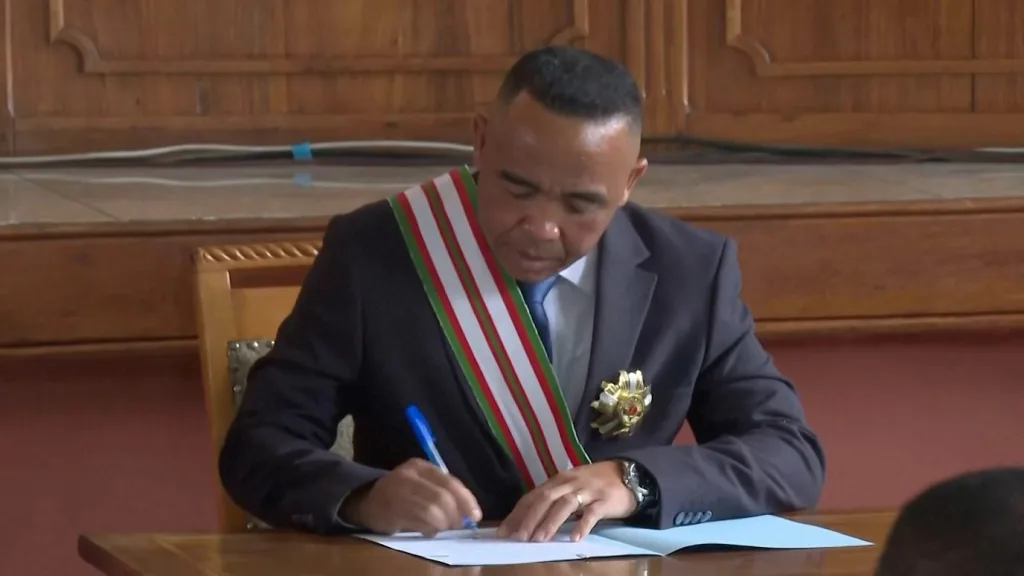Madagascar’s political landscape shifted dramatically this week as Colonel Michael Randrianirina, the 51-year-old commander of the elite CAPSAT unit, was sworn in as president, following a military intervention that forced President Andry Rajoelina to flee the country.
The ceremony at the High Constitutional Court in Antananarivo on Friday, October 17, 2025, formalised his appointment, drawing sharp international attention and raising concerns about the island nation’s democratic future.
The crisis erupted amid mass youth-led protests that began on September 25, driven by frustrations over chronic power and water shortages. The demonstrations turned deadly, with the United Nations reporting at least 22 deaths and more than 100 injuries. Security forces initially cracked down harshly on the protesters, but CAPSAT refused orders to fire, siding with demonstrators, a move that marked a turning point in the unrest and elevated the unit to a central role in the new political arrangement.
President Rajoelina fled Madagascar on October 13, citing threats to his life. The National Assembly subsequently impeached him for “desertion of duty,” while the military assumed control of the government, dissolving key institutions except for the Assembly.
Rajoelina’s departure echoes past exiles in Madagascar, including former leaders Didier Ratsiraka in 2002 and Marc Ravalomanana in 2009.
Speaking to local media before his swearing-in, Randrianirina emphasized that the new government would include both military and civilian representatives. He pledged elections within 18 to 24 months and consultations to appoint a consensus prime minister.
“Madagascar has not chosen a military regime. The government belongs to civilians, and the presidential council includes both military and civilian members,” he said.
Critics, including allies of Rajoelina, however, condemned the constitutional court’s endorsement of Randrianirina, citing procedural flaws and warning that the move could destabilise the nation further.
Madagascar is no stranger to military transitions. Since independence from France in 1960, it has experienced three military takeovers, with the most recent prior to this year occurring in 2009. The island also joins a growing list of former French colonies to fall under military control since 2020, including Mali, Burkina Faso, Niger, Gabon, and Guinea.
Despite its abundant natural resources and unique biodiversity, Madagascar remains one of the world’s poorest countries, with about 80 per cent of its roughly 32 million people living below the poverty line, according to World Bank benchmarks.
The international community has voiced concern over the coup. The African Union (AU) and the Southern African Development Community (SADC) announced fact-finding missions and stressed the importance of preserving constitutional democracy.
French Foreign Minister Jean Noel Barrot, during a visit to Nigeria, told reporters that full civilian involvement in the transition was essential and that the voices of Madagascar’s youth must be heard to ensure a sustainable and peaceful solution.
As Madagascar navigates this uncertain period, the eyes of the world remain on the island, watching how its new leadership will address deep-rooted challenges and whether the nation can chart a path toward lasting stability and democratic governance.
